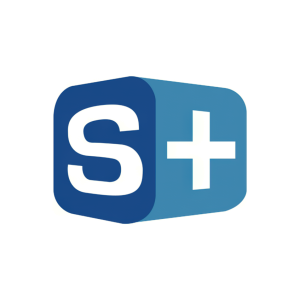Simulations Plus Extends Collaboration with Major Toxicology Research Agency
Research project with NIEHS includes focus on qualification of in silico methods for prioritization, assessment of risk, and identification of safety margins for chemical use
Simulations Plus, Inc. (Nasdaq: SLP) (“Simulations Plus”), a leading provider of modeling and simulation solutions for the pharmaceutical, biotechnology, chemicals, and consumer goods industries, today announced an extension to the formal agreement with the Translational Toxicology Division at the National Institute of Environmental Health Sciences (NIEHS) to support the rapid safety assessment of chemicals in animals and humans.
“At NIEHS, we seek to expand scientific knowledge and approach methods linking the environment and human health. The Division of Translational Toxicology (DTT) at NIEHS provides health effects research to federal, state and local health agencies to identify emerging public health issues and support the conduct of formal risk assessments and decision-making,” said Stephen Ferguson, Ph.D., scientific lead for the NIEHS project. “The agreement with Simulations Plus provides computational tools that support investigations of environmental chemicals and their potential health effects.”
Computational model predictions from ADMET Predictor® and GastroPlus® enable in vitro to in vivo extrapolation (IVIVE) that relates biologically-active exposure levels to environmental exposure scenarios. This enables more accurate estimates of chemical safety margins (Sipes et al. 2017. Environ Sci Technol, Sep 19;51(18):10786-10796. doi: 10.1021/acs.est.7b00650) and a framework for integration of various types of toxicology data (e.g., mechanistic data, in vivo & in vitro toxicology studies) for decision-making (e.g., risk assessments, safer product formulation).
“Importantly, these tools are being investigated for their potential to address a critical gap in toxicology research for understanding and modeling human bioactivation of environmental chemicals through xenobiotic metabolism,” Ferguson added.
“It’s critical to understand how chemicals may react in the body, and that can vary depending on whether they are inhaled or absorbed through the skin, whether the person was an adult or child, and if there are other health conditions present,” said Michael Lawless, Sr. Principal Scientist in the Cheminformatics Solutions team at Simulations Plus. “As in vivo testing becomes more and more limited, the application of our software to support new approach methodologies (NAMs) to predict those outcomes becomes more crucial, and we are proud to be working with DTT/NIEHS to support their environmental health and safety research activities.”
GastroPlus is a mechanistically based modeling and simulation software that simulates intravenous, oral, intraoral (oral cavity), pulmonary (respiratory), ocular, dermal (topical and subcutaneous), intramuscular, and intraarticular routes of administration, as well as biopharmaceutics, pharmacokinetics, and drug-drug interactions in humans and animals. It is the leading physiologically based pharmacokinetic/physiologically based biopharmaceutics modeling (PBPK/PBBM) platform, built and refined over 25 years on the most up-to-date scientific research.
ADMET Predictor is a machine learning (ML) platform that predicts the absorption, distribution, metabolism, excretion, and toxicity (ADMET) of new molecules. It incorporates more premium and extensively curated data from pharmaceutical and agrochemical partners than any other cheminformatics platform, which provides enhanced predictive accuracy and wider applicability of its models.
Learn more about GastroPlus and ADMET Predictor.
About Simulations Plus, Inc.
Serving clients worldwide for more than 25 years, Simulations Plus is a leading provider in the biosimulation market providing software and consulting services supporting drug discovery, development, research, and regulatory submissions. We offer solutions that bridge artificial intelligence (AI)/machine learning, physiologically based pharmacokinetics, quantitative systems pharmacology/toxicology, and population PK/PD modeling approaches. Our technology is licensed and applied by major pharmaceutical, biotechnology, and regulatory agencies worldwide. For more information, visit our website at www.simulations-plus.com. Follow us on LinkedIn | X | YouTube.
Environmental, Social, and Governance (ESG)
We focus our Environmental, Social, and Governance (ESG) efforts where we can have the most positive impact. To learn more about our latest initiatives and priorities, please visit our website to read our 2023 ESG update.
Forward-Looking Statements
With the exception of historical information, the matters discussed in this press release are forward-looking statements that involve a number of risks and uncertainties. Words like “believe,” “expect” and “anticipate” mean that these are our best estimates as of this writing, but that there can be no assurances that expected or anticipated results or events will actually take place, so our actual future results could differ significantly from those statements. Factors that could cause or contribute to such differences include, but are not limited to: our ability to maintain our competitive advantages, acceptance of new software and improved versions of our existing software by our customers, the general economics of the pharmaceutical industry, our ability to finance growth, our ability to continue to attract and retain highly qualified technical staff, our ability to identify and close acquisitions on terms favorable to the Company, and a sustainable market. Further information on our risk factors is contained in our quarterly and annual reports and filed with the
View source version on businesswire.com: https://www.businesswire.com/news/home/20240215836427/en/
Simulations Plus Investor Relations
Renee Bouche
661-723-7723
renee.bouche@simulations-plus.com
Financial Profiles
Lisa Fortuna
310-622-8251
slp@finprofiles.com
Source: Simulations Plus, Inc.







